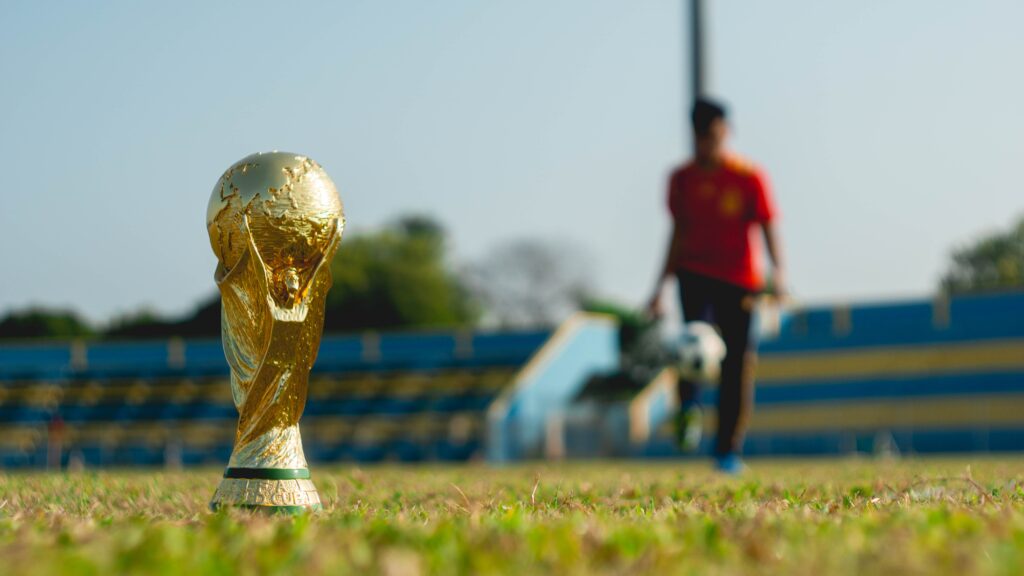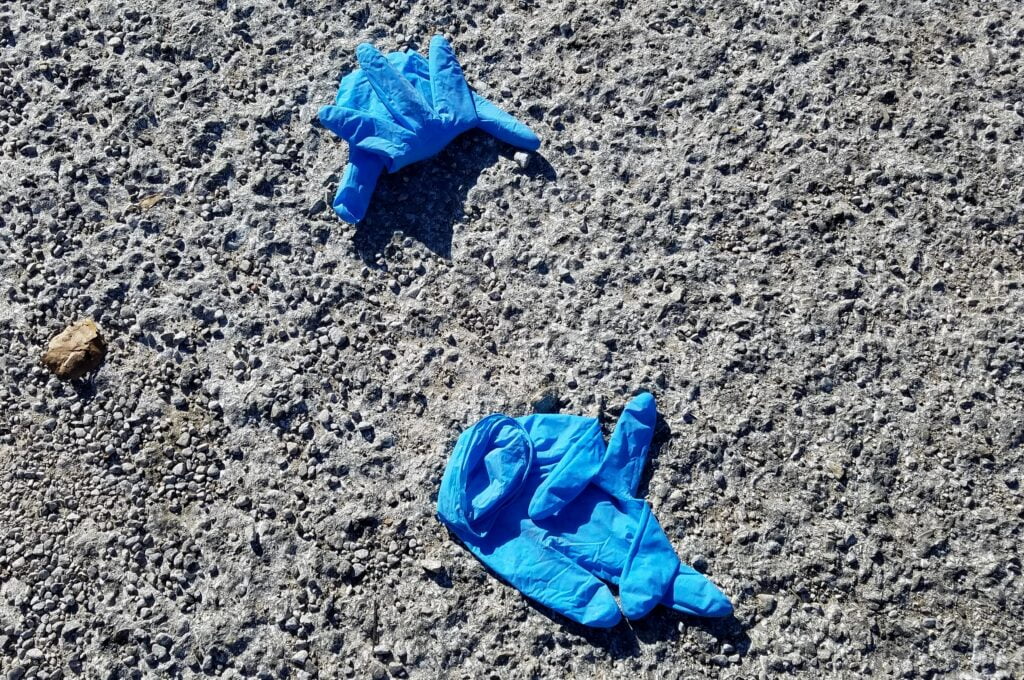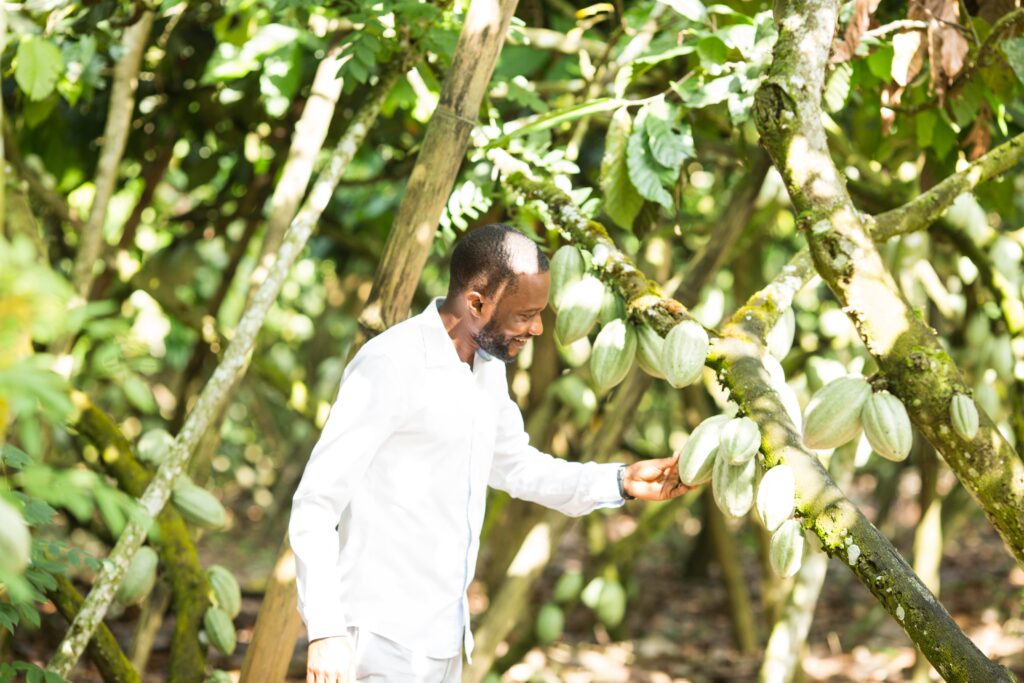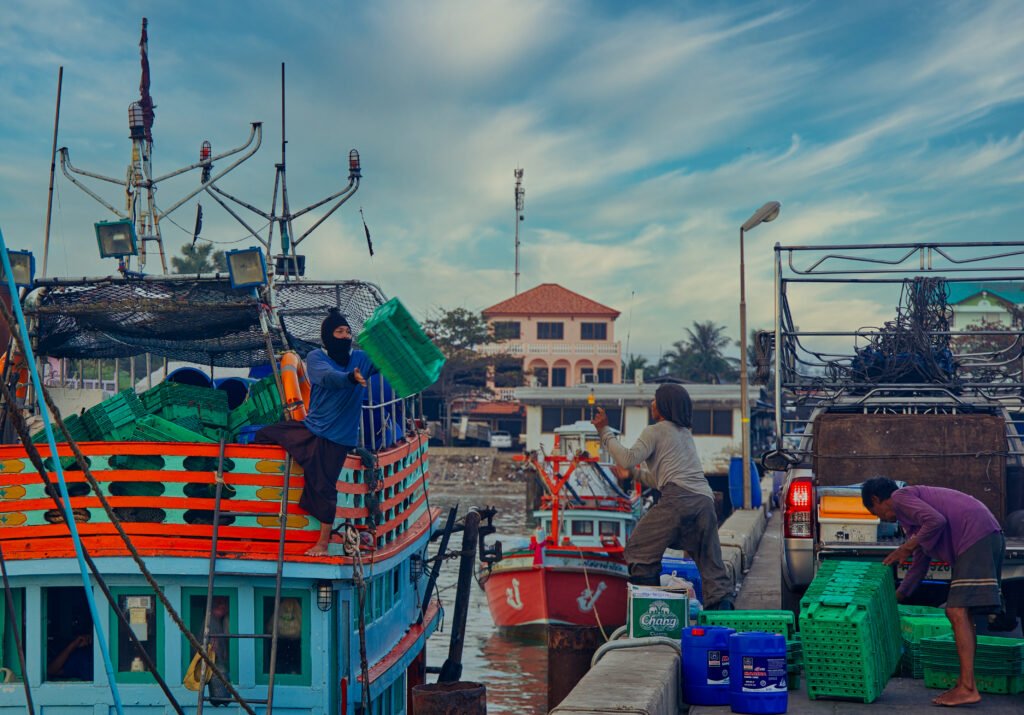Sustained pressure, from governments to seafood shopping consumers, could help end the suffering of migrant workers in offshore illegal fisheries.
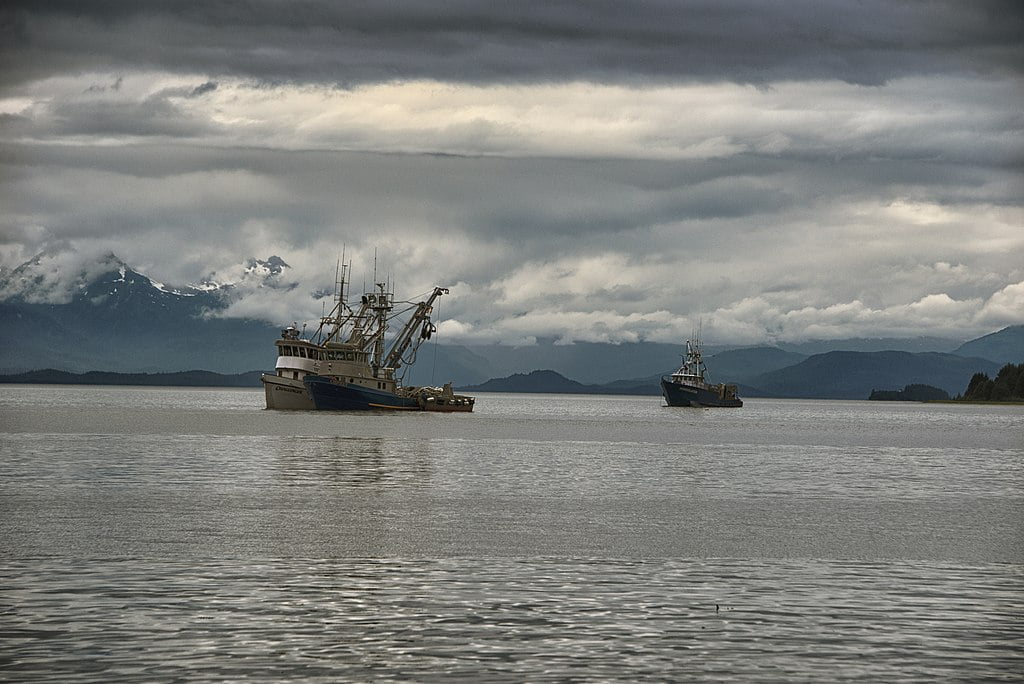 The nature of the commercial fishing industry makes it vulnerable to labour issues. : Gillfoto, Wikimedia Commons CC BY 4.0
The nature of the commercial fishing industry makes it vulnerable to labour issues. : Gillfoto, Wikimedia Commons CC BY 4.0
Sustained pressure, from governments to seafood shopping consumers, could help end the suffering of migrant workers in offshore illegal fisheries.
Far out to sea, away from oversight, the big blue ocean is often referred to as the ‘last frontier’: a place of quiet desolation and — for criminal syndicates — legal impunity. Some fisheries have exploited this isolation to practice modern day slavery, subjecting migrant workers to horrible conditions and bringing in lucrative returns for their crimes.
This ‘out of sight, out of mind’ phenomenon means fishers have very little oversight until they come into port. Developing economies are often most affected, but conditions of indentured servitude and modern-day slavery have been reported all over, including Korean vessels fishing within New Zealand’s coastal waters. Estimates suggest that more than 100,000 fishers die every year due to unsafe working conditions, poor oversight, labour abuses, and modern day slavery.
This phenomenon begins well before fishers step foot on a vessel. In many Southeast Asian countries, migrant fishers are targeted by predatory recruitment agencies and human traffickers. Often, these agencies go to poverty stricken rural villages in Indonesia, Thailand, Laos, Vietnam and Cambodia promising lucrative contracts to workers with few other options to support their families.
When the workers arrive, supposedly to board their vessel or work in processing factories, the recruitment agency takes their passports, cuts them off from contact with the outside world and often locks them away in apartments with abysmal conditions until they are placed on a boat, where rape, near starvation and other violations often occur.
A main stipulation of these agencies and complicit captains is that workers pay off their placement and visa fees. This system is very similar to that used with indentured servants sent to British-American colonies in the 17th century. The system is rigged against them, taking years of hard labour, often working up to 20 hours a day, to pay off exorbitant fees, let alone make money to send home. Often, fishers report never receiving the wages they were promised, even after fulfilling their contracts.
Once they finally get on the boat, living conditions are worse – sleeping next to hot engines and breathing unfiltered exhaust, eating scraps or rotten bait fish, being starved, beaten, abused.. There’s no way for them to report this – they’re often out of mobile phone reception (if it hasn’t been confiscated on boarding), have no idea where they actually are and simply struggle to survive. These conditions are even worse on distant water fishing vessels, which can be at sea for months to years at a time. Boats are often resupplied at sea (and away from oversight) by larger boats, where fish catches and at times, fishers themselves are transferred (referred to as transhipping) to different vessels.
The risk of labour abuses and modern-day slavery depends a lot on the type of fishery. For instance, nearshore, shallow water fisheries that return to port on a regular basis have lower risks than distant water fishing fleets that spend most of their time on the hard-to-police high seas.
The risks are also higher if vessels are flagged in countries with limited oversight on their fleets, such as Thailand, Taiwan and China that are notorious for allowing, or at least exhibiting, very little control over their distant water fleets that target squid, prawn, tuna, and other lucrative species.
In the last ten years, high-risk investigatory reporting has provided damning evidence of the abysmal conditions fishers are exposed to – withholding of wages, verbal and physical abuse, starvation, being fed amphetamines so fishers can work around the clock, kept chained up while not working, imprisonment in private prisons on remote islands, even murder.
Registering a vessel in a country with limited control and oversight of their vessels is known as ‘flags of convenience’ – a substantial loophole that, if closed, could increase oversight on these fleets.
It is incredibly difficult and dangerous to uncover these abuses – operations that engage in these practices are often tied to or run by crime syndicates and operate with impunity far out to sea. However, combining risk-based assessments with technological capabilities such as satellite monitoring and big data analysis is making it easier to shine a light into the murky waters surrounding labour abuses in fisheries.
As awareness and ability to detect abuses increases, so do our options. Vessels undertaking illegal fishing and labour abuses tend to stay at sea for a long time – there are economic reasons for this, but it also means they operate outside of any nation’s control except that of the flag state. Because these flag states exert very little actual control over these vessels, one recently proposed solution is to hold flag states fiscally responsible for the actions of vessels flagged in their countries.
But many vessels do eventually come into port – and if they’re up to no good, they tend to choose ports in places with very little oversight or risk of inspection. Advocates continue to pressure countries to sign and ratify binding international agreements that increase oversights in ports and on vessels themselves, including the UN’s Food and Agriculture Organization’s Port State Measures Agreement, the International Labour Organization’s Work in Fishing Convention, and the International Maritime Organization’s Cape Town Agreement.
Individual consumers can make a difference too.
Transparency in fisheries and their supply chains is notoriously bad. Being clearer about who is fishing where, what they are catching, and the way fish are moved through the supply chain to end up in our supermarkets is fundamental to reducing modern day slavery and illegal fishing.
Companies are sensitive to consumer sentiment. The strongest consumer action would be to stop buying high risk seafood such as prawn and tuna. But a more concerted effort to buy products not associated with slave labour in the supply chain — such as those with Marine Stewardship Council’s Blue Tick — is consumer action that, if done at scale, would make a noticeable impact.
Consumer advocacy — such as asking seafood companies if and how they audit their supply chains to ensure slave labour is not involved in the production of their product — may tip the scales. After investigative articles by the New York Times and The Guardian showed how slave labour was producing prawns and pet foods sold in major supermarket stores in the US and the UK, many companies made public commitments to eliminate slave labour from their supply chains.
Sustained pressure from both top-down policy interventions and bottom-up consumer pressure could ensure fisheries brands realise the drive to end labour abuses is not a fad, but an ongoing imperative supported throughout the world.
Brock Bergseth is an ARC Discovery Early Career Research Fellow at James Cook University. His work seeks to understand and influence human behaviour to bolster conservation outcomes. As a multidisciplinary conservation scientist, he blends psychological, ecological, economic and cognitive science approaches to understand and shape the nature and implications of human interactions with marine ecosystems.
His work focuses on addressing pressing issues in conservation, including human rights, illegal fishing, overfishing and poaching. As an environmental writer, Brock also works to counter the deluge of negative public perceptions about the state and future of our planet, to showcase those working to conserve our planet and to galvanise environmental action in today’s youth.
Originally published under Creative Commons by 360info™.


